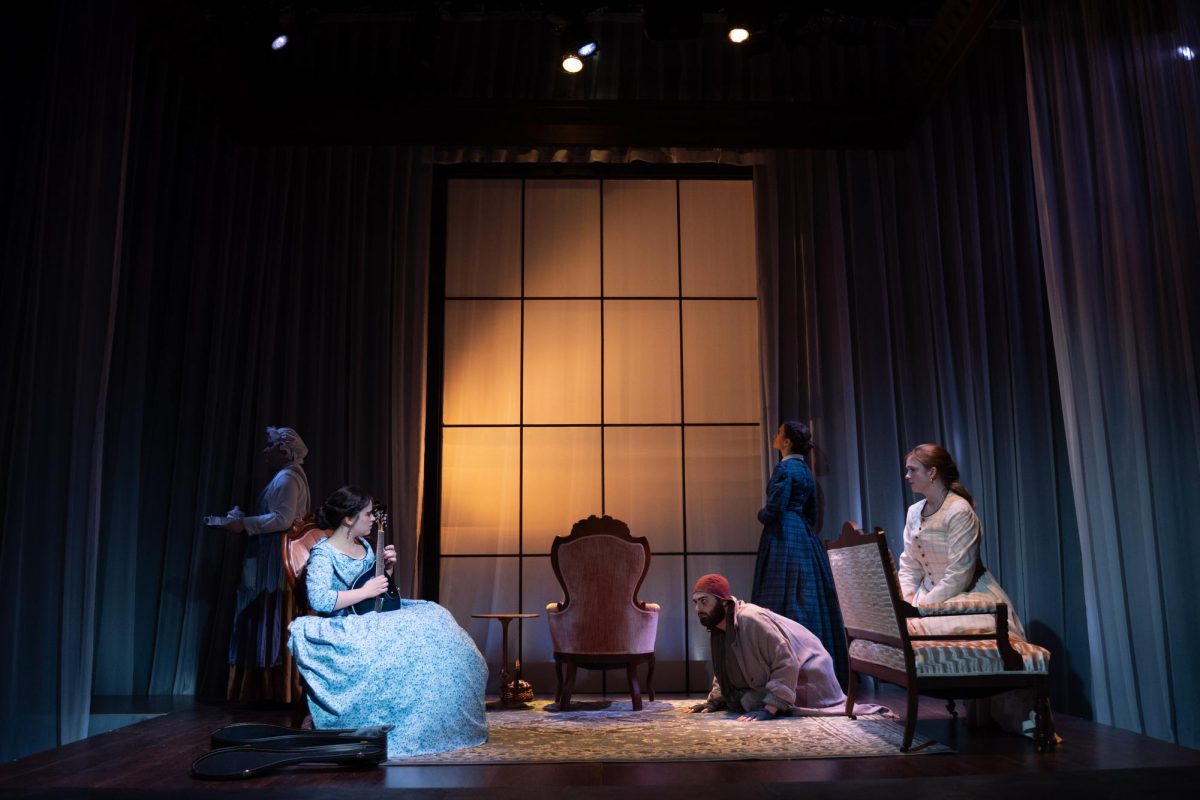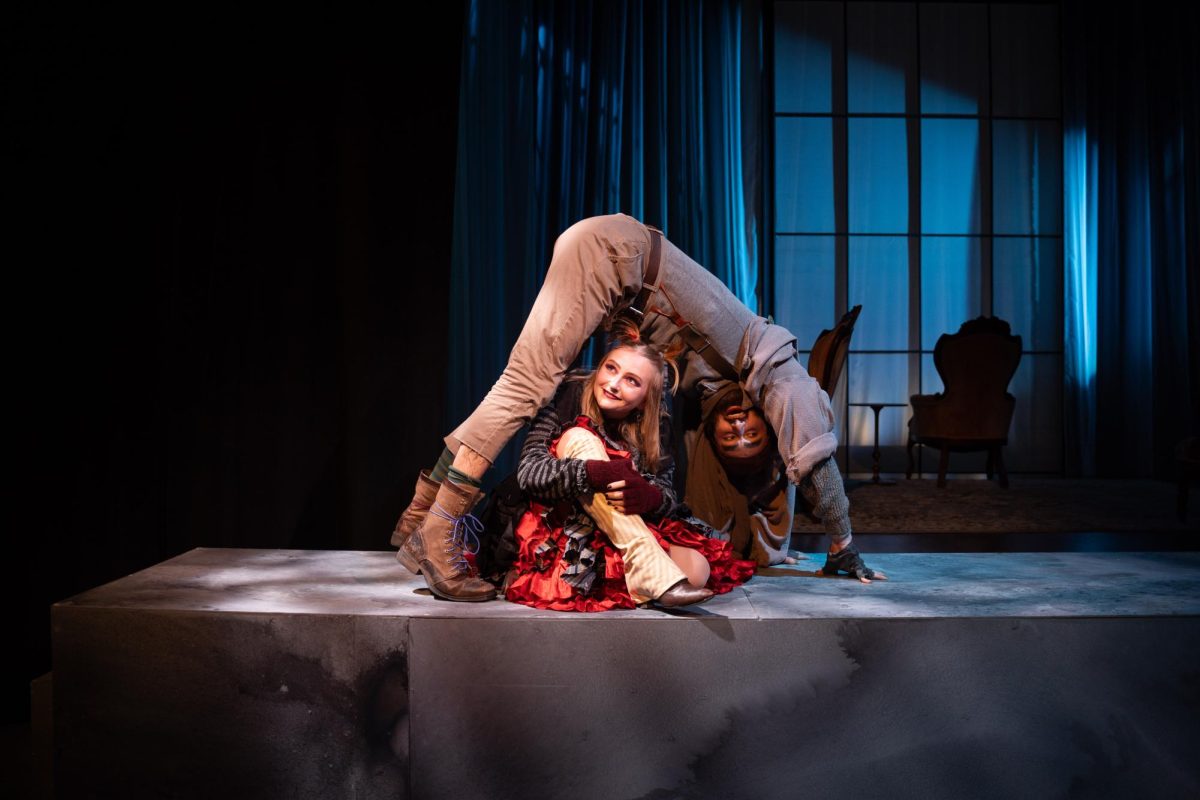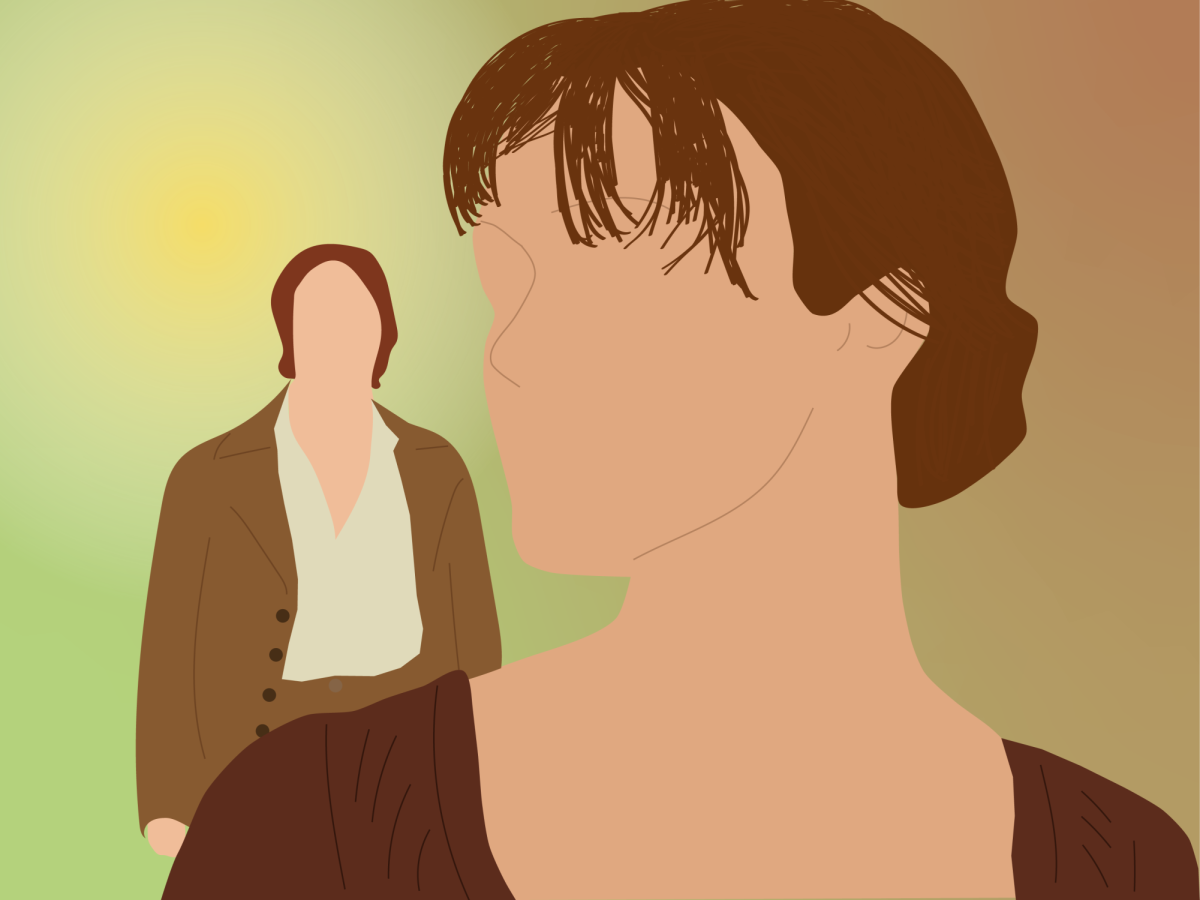The Studio Theatre in Curry Student Center welcomed the Department of Theatre’s production of “The Moors” by Jen Silverman from Nov. 9-19. “The Moors,” directed by theatre professor Jonathan Carr, is an eerie play set in England around the 1840s, where nothing is as it seems.
Emilie (Abby Kesselman), a governess hired by Mr. Branwell for childcare, meets sisters Agatha (Halle Brockett) and Huldey (Brenna Thornton) upon arriving at her new workplace — the Brontë Manor. After arriving at the Brontë manor, Emilie discovers that Mr. Branwell, who is revealed to be Agatha and Huldey’s brother, is strangely absent, and no child is in sight. Instead, Emilie is met with Agatha’s cold demeanor, Huldey’s attention-craving personality and the Mastiff (Noah Braunstein), the neglected family dog
As Emilie investigates why she is really in the manor, which becomes increasingly obvious is not for a babysitting gig, the seemingly different Agatha, Huldey and Mastiff find that they share more similarities than they initially thought. Later in the play, it was revealed that the person writing letters hiring Emilie was not Mr. Branwell but Agatha.
Alongside Emilie’s story, the Mastiff, deprived of care and nurturing from the sisters, spends the play seeking out love in a humorous yet endearing subplot. He falls in love with the Moor-Hen (Lily McCollum), who doesn’t reciprocate his advances. The play challenges the status quo of gender roles of the time, as all of the female characters embody confidence, independence and strength.
Although most of the play felt uncanny and bizarre, there were moments of comedic relief supported by the brilliant acting of the cast. Thornton’s embodiment of Huldey’s outgoing personality sparked many fits of laughter from the audience, as did the housemaid (Maerose Pepe), who claimed to have two identities, Marjory and Mallory, distinguished by two different hats.
Although “The Moors” is not a musical, a few moments showcased some of the actors’ singing talents. Both Huldey and Emilie had solos in the play, and it was a nice pause from the dialogue-heavy production. Emilie even had a mandolin to accompany her sweet voice, which Kesselman played beautifully.
The show had an array of costumes — from Victorian-era dresses to the eccentric Moor-Hen ensemble — that added a contrast to the minimalistic set. With each chair rotation or change in location, characters would claim to have entered a new room but entered on the same stage each time, which was a recurring gag throughout the show. However, due to the sparse furniture and a lack of extensive props, it was sometimes difficult for the audience to discern which room the characters were in.
The subplot between the Mastiff and the Moor-Hen was supposed to reference the central theme of sacrifice in the play, but on the surface, it was hard to find the link between it and the main storyline. The actors did a great job, given what they had — and their costumes partially made up for the weak link.
The play integrated the element of surprise well. There were many instances where the audience jumped, like when the Moor-Hen fell from the sky out of nowhere. The biggest shock factor, however, came toward the end of the play when the maid suggested that someone commit murder. As a result, the play then concluded with Agatha being murdered and the Moor-Hen eaten. While part of the audience enjoyed the ambiguous, open-to-interpretation ending, several people might have felt unsatisfied. The ending was quite abrupt, leaving many wanting more.
This dark comedy is a strong metaphor for love, desperation and independence. The mysterious elements and dialogue are sure to keep audience members on the edge of their seats, making them question their own priorities and commitments in life. Leaving the crowd, deep in thought, viewers won’t help but wonder, “What just happened?”




















